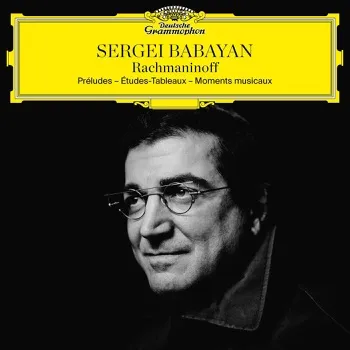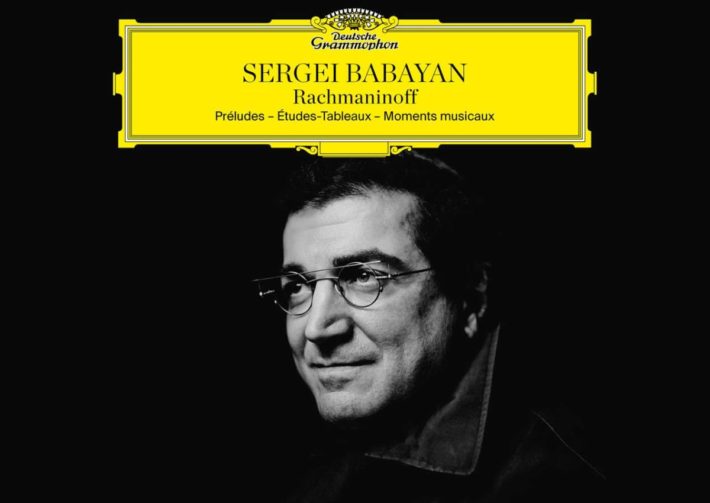Rachmaninoff’s music is often regarded by pianists as the echelon of technical mastery; just as importantly, however, exists a deep and dynamic emotional complexity. Sergei Babayan’s first solo DG release features some of the composer’s finest works and is a thoughtful exploration of what he describes as a “limitless emotional palette.”

One central aspect that unifies these performances is the sense of spontaneity; Babayan has a natural, almost improvisational approach. Among the Preludes offered here, two of the finest are Op. 23 No. 8 and Op. 32 No. 12 (tracks 1-2). The Op. 23 floats and brings out a carefree quality that is rare in Rachmaninoff’s works. There is a capriciousness in the interpretation, which is balanced with nice clarity. Much of Rachmaninoff’s piano writing contains intricate relationships between different voices (often to the pianist’s technical woes). The only thing I found missing here was that more attention could be given to the hidden lines, which when brought out, would reveal an interesting dialogue.
Op. 32 is a fine performance that displays the pianist’s sensitivities. The opening id particularly interesting: the first new notes in the right hand deftly mimic a call from afar, while the left hand is surprisingly subdued, simultaneously contemplative and proclamatory. Those who cherish Horowitz’s live Moscow performance from 1986 may be caught off guard, but will soon appreciate the intricate changes in phrasing and color.
The two selections from the Op. 21 songs also show Babayan’s musicality. Lilacs (track 3) is lovely: here, he takes an almost Debussian approach with a delicate transparency. On his own Ampico recording, Rachmaninoff’s right hand accompaniment textures resemble the actual tolling of the bells, whereas Babayan’s places more emphasis on the aftersounds. These blended harmonic colors create an aura of intrigue, one that brings to life the words of the original song (a narrator, searching for personal happiness, finds that it only exists in the surrounding lilacs).
The two Moments Musicaux, as some of the bigger works presented here, allow us to appreciate Babayan’s more powerful playing. No. 6 (track 15) is the highlight, and a strong conclusion to the album. Hear how the balance between the sostenuto chordal melody, the descending chromatic octave ostinato, and the bass notes is balanced carefully. What results is an exciting rendition that embodies the Maestoso indicated by the composer.
Although Babayan’s improvisatory approach is effective for most of the works on this album, this is less the case in the two Op. 39 Etudes-Tableaux. While No.1 is consistent with the other selections in its polished lyricism (particularly in the middle section), the outer sections do not respond as well to the unexpected and slightly odd shifts in the tempo, which somewhat dampen the momentum needed. In No. 5, the chordal accompaniment should not sound metronomic by any means, but the rubato Babayan implements here is, to me, overemphasized.
The liner notes are a good companion to the performance, presenting the pianist’s lifelong and personal experience with Rachmaninoff’s music. Minus the few misses, Babayan presents a heartfelt performance of a composer who he mentions made a profound impact on him. This sincerity is evident in his playing, and any dedicated Rachmaninoff listeners will do well to include this recording in their collection.
Rachmaninoff – Préludes, Études-Tableaux, Moments Musicaux (selection)
Sergei Babayan – Piano
Deutsche Grammophon, CD 4839181




















